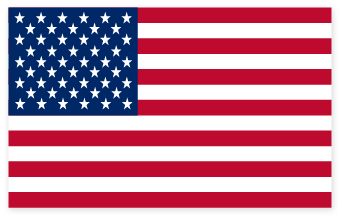It is permitted to pray even if your arm is not covered but it is forbidden to be a Shliach Tzibbur if your arm is uncovered. Therefore, you should try to cover your arm with your Tallit.
Explanation:
Mishna in Megillah 24a: a ‘Pocheach’ can Pores Et Shema and Metargem (translate) but he not allowed to read the Torah nor be a Chazzan nor do Birkat kohanim.
Rashi explains a ‘Pocheach’ is someone barefoot. As the passuk in Yeshaya 20 says , “Naked and barefoot.” The Targum says, “Artilai and Pachach.” Rashi continues that Yachaf does mean only barefoot but like it says in Masechet Sofrim (14:15), “Pocheach is ne who we see his legs or his clothing is torn.” Meaning his legs are showing and he not wearing socks.
The Meiri contradicts this iwht the Mishna: One who says he will not be a chazzan wearing sandal may not be a chazzan barefoot either.” It seems that Yachaf is permitted since he is not allowed to do it if he refuses. He quotes Gedolei Haposkim (the Raavad) who explains it is he whose clothing is torn so much that they fall off his shoulders and his shoulders are exposed.
The Rambam explains Pocheach similarly (Tefilla 8:12) that it’s someone whose shoulders are exposed. The Rif understands this way as well and so does the Aruch who explains Pocheach as one whose clothing is torn dn he is missing sleeves and he has bare arms.
The Shulchan Aruch (OH 53:13) writes: Pocheach, one whose clothing is torn and his arms are exposed, he should not be the chazzan.
The Mishna Berura (39) : His shoulders are also exposed. The Mishna Berura rules like the Rambam and the Rif but the Shulchan Aruch only mentions the arms. The Meiri himself says there is a different in Masechet Sofrim that says his ‘arms’ are exposed. Therefore, the Shulchan Aruch is stringent that even if just his arms are exposed, he shouldn’t be a Chazzan
The Gemara in Brachot 24b writes: Rav Huna said if his Tallit was tied around his waist it is permitted to say Shema. A beraita also says if his Tallit of cloth, leather, or burlap was tied around his waist it is permitted to say Shema but for Shemoneh Esrei he needs to cover his chest.
So rules the Shulchan Aruch in OH 91. The Bach explains that his chest doesn’t just mean his chest, it means his whole body has to be covered for Tefilla. The Gemara only meant that for Shema it permitted even if his chest is exposed, but one must cover his whole body for Tefilla. The Mishna Berura agrees (91:2).
It is true that the Talmidei Rabbeinu Yonah write that for Tefilla one must cover his chest since the heart is most important organ a person has. It seems that is specifically the heart (chest) but anything else is permitted to leave uncovered for Tefilla. So, it seems that the Shulchan Aruch who also just says he must cover his heart, is being very specific to exclude his whole body. That which the Shulchan Aruch rules by Pocheach is only discussing a Chazzan where we are more stringent than others. Meaning that for a chazzan it is forbidden for his arms to be exposed above the elbow (like a tank top). Anyone else just needs to have their chest covered, meaning he may wear a sleeveless shirt.
R’ Ovadia Hadaya (Shut Yaskil Avdi chelek 7 pg. 329) writes that even if his lower arms are exposed, he may not be a Chazzan, but he must cover his whole body. He even writes we should protest if someone goes to the Amud wearing short sleeves, and not only chazzanim but anyone who comes to the Bet Knesset should not pray like that.
R’ Ovadia Yosef (Yechaveh Daat chelek 4 pg 38) contradicts this ruling with that of Pocheach. It forbidden to be the chazzan but it is permitted to answer Kaddish and kedusha. Therefore, one may wear short sleeves to pray unless you are a Chazzan.



